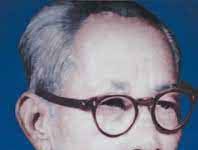Labid bin Rabiyah | His Life and Poetic Career
Labid bin Rabiyah | His Life and Poetic Career
Labid bin Rabiyah | His Life and Poetic Career
Brief life Sketch: Labid bin Rabiyah was a prominent Arabic poet of both pre-Islamic and Islamic eras. He is considered to be the youngest of the Arabic Muwallaka poets. His real name was Abu Aqil Labid bin Rabiyah bin Malik bin Jafar. He was born in 514 AD to the famous Amir dynasty of Arabia. His father’s name was Rabiyah bin Malik. He was a generous leader. Labid bin Rabiyah inherited some of the greatest virtues, such as generosity, forgiveness, benevolence, and morality. Labid was inclined to poetry since his childhood. It is said that in order to test Labid’s poetic power, his elder brother once asked him to compose a poem about a piece of grass laying in front of him and then he wrote the following piece of poetry instantly:
“No fire can be lit by this grass
Can’t build a house.
It’s no one’s tool of joy
It can’t be used as a piece of wood
The use of its leaves is also very little
The branches are so soft
It is the worst species of the herb. ”
In this way, by composing poems, Labid bin Rabia established himself as a great poet. When he was over a hundred years old he was offered to convert to Islam. Then he, with some of his companions, went to Madina and met Hazarat Mohammad. There he listened to the reciting of some verses from Surah Bakara and converted to Islam. After converting to Islam, he gave up writing poetry. When he was asked why he gave up writing poetry, then he said, “Allah has given me the Qur’an instead of poetry.” He is said to have memorized the entire Koran in his old age. However, after his conversion to Islam, he wrote some poems, all of which were based on Islamic philosophy.
He lived to be 145 years old and died in 661 AD during the reign of Muawiyah.
Poetic Career: Labid was a prolific poet belonging to both the Pre-Islamic and Islamic eras. The influences of both eras are evident in his poetry. A study of the few preserved parts of his poems reveals that the themes of his poems were war, rural life, love, desert scenes, animals, human qualities, etc.
His famous Muwallaka poem, like other Muwallaka poems, begins with a love affair. It has depicted the scene of his beloved’s abandoned residence. He has shown skill in describing the solitude of the abandoned place very eloquently. It is important to note that there is no description of the physical beauty of his beloved in his poem.
In his famous muwallaka poem, after describing his love affairs, he gives an account of the camel he rode on, and he concludes the description of his camel by comparing it to a wild donkey.
This is followed by a description of a cow that had lost its calf along with a vivid picture of the hardships he encountered along the sandy way of the desert, describing the wind, clouds, rain, etc.
Overall Labid’s Muallaka poem is a poetic description of his journey through the desert.
Although Labid bin Rabiyah is a poet of the pre-Islamic era, his poetry is completely free from the obscene descriptions of women found in the poetry of other poets of that era. On the contrary, his poetry deals with the themes of humanity, patience, forgiveness, natural beauty, and life struggles in the desert.
From the viewpoint of poetic style, his poems are not as sensitive as those of Imraul Kaiser, although the ingenuity of narration and the combination of simple and complex words are present in his poems.
The poem, written by Labid bin Rabia after his conversion to Islam, deals with the themes of the greatness of Allah, the ephemerality of human life, the Day of Judgment, and other Islamic philosophies. Here, a few lines from his poetry are quoted as examples:
“Everything except Allah is worthless.
All happiness will disappear unconditionally
……………………………
The last trial day will unfold
All your actions in front of you
And Allah, the Almighty, will judge your deeds.
Listening to the verses of Labid bin Rabiyah, Hazrat Muhammad praised him and said, “The best verse that a poet can compose.”
It is safe to say that Labid bin Rabiyah was an exceptional poet of the pre-Islamic and Islamic eras whose poetry did not contain any description of inhumanity or obscenity. 0 0 0.
Read More: A Brief History of Arabic Literature: Early Islamic Period (622 AD-661 AD)
N.B. This article ‘Labid bin Rabiyah: His Life and Poetic Career’ originally belongs to the book entitled ‘A Brief History of Arabic Literature: Pre-Islamic Period (500 AD-622 AD) by Menonim Menonimus.
Related Searches:
Books of Literary Criticism by M. Menonimus:
- World Short Story Criticism
- World Poetry Criticism
- World Drama Criticism
- World Novel Criticism
- World Essay Criticism
- Indian English Poetry Criticism
- Indian English Poets and Poetry Chief Features
- Emily Dickinson’s Poetry-A Thematic Study
- Walt Whitman’s Poetry-A Thematic Study
- Critical Essays on English Poetry
- Tawfiq al-Hakim’s Novel: Return of the Spirit-An Analytical Study
- Tawfiq al-Hakim’s Novel: ‘Yawmiyyat Naib Fil Arayaf’-An Analytical Study
- Analytical Studies of Some Arabic Short Stories
- A Brief History of Arabic Literature: Pre-Islamic Period (500 AD-622 AD)
- A Brief History of Arabic Literature: Early Islamic Period (622 AD-661 AD)











